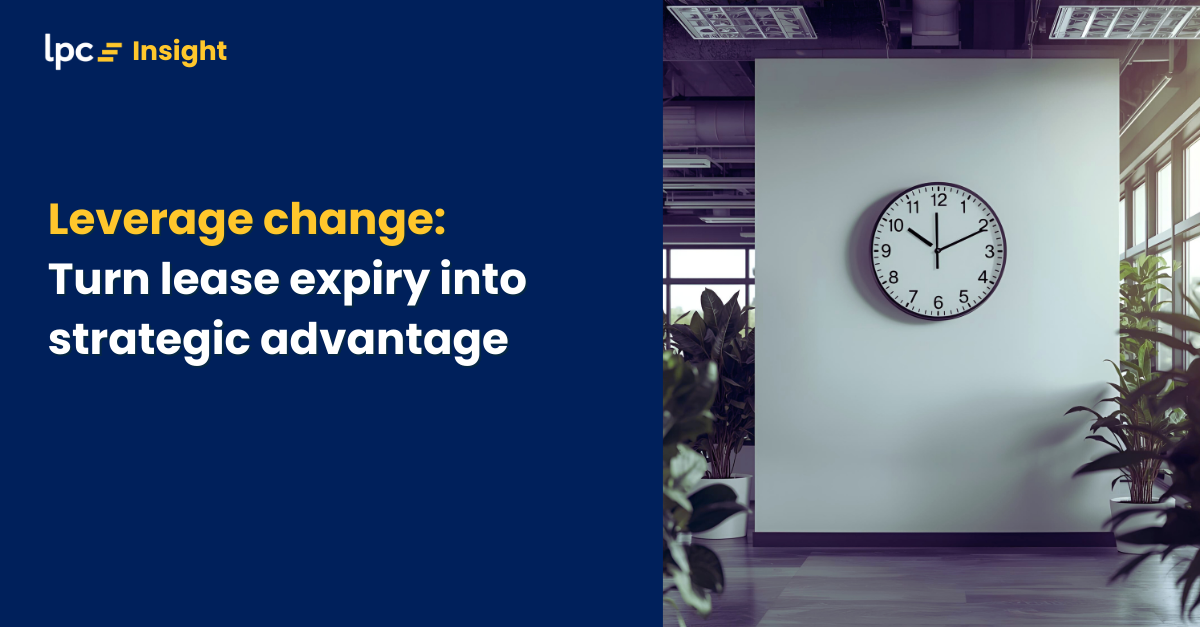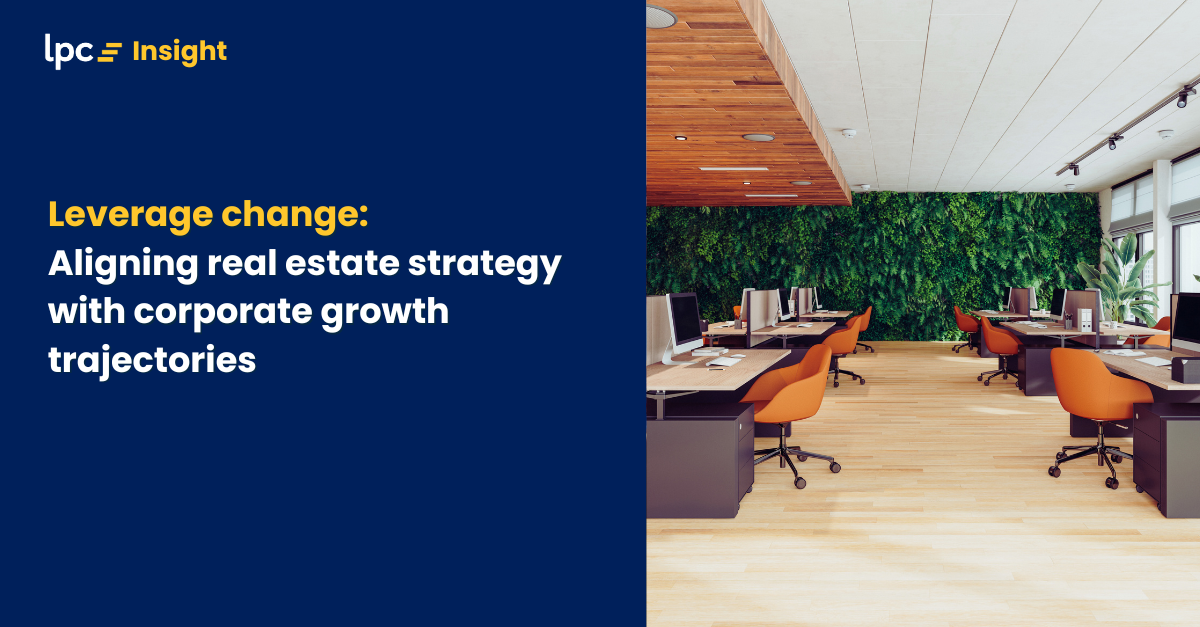We posed commonly asked questions to the LPC retail team for their expert opinion.
1. How can I negotiate more favourable terms in my retail lease agreement?
Negotiating favourable terms in a retail lease agreement involves thorough research, clear communication, and strategic negotiation. Start by understanding your market position and the landlord's motivations. Highlight your business's strengths and potential benefits to the landlord, such as a solid track record or unique offering. Consider engaging a retail-focused tenant representative to leverage their expertise and negotiate on your behalf.
2. What are the key factors influencing retail lease costs in the current market?
Several factors influence retail lease costs, including location, foot traffic, property size, amenities, and market demand. In the ANZ market, factors such as economic conditions, consumer spending patterns, and competition also play significant roles. Understanding these dynamics helps in assessing lease costs and negotiating effectively.
3. How does the length of my lease impact overall rental costs and flexibility?
The length of your lease can impact rental costs and flexibility. Generally, longer leases may offer more stability and potentially lower rental rates, but they can limit flexibility for future growth or changes in business needs. Shorter leases provide more flexibility but may result in higher rental costs. Evaluate your business goals and market conditions to determine the most suitable lease term.
4. Can I request a rent-free period or other concessions when negotiating a new lease?
Yes, it's common to negotiate rent-free periods or other concessions when entering into a new lease agreement. Landlords may offer incentives to attract tenants, especially in competitive markets or during economic downturns. Presenting a compelling case based on your business's potential value to the property and market conditions can strengthen your negotiation position.
5. What strategies can I employ to reduce base rent in my retail lease agreement?
Negotiating lower base rent requires a combination of market knowledge, negotiation skills, and presenting a compelling case to the landlord. Consider factors such as comparable rental rates in the area, property condition, lease terms, and your business's financial stability. Offering longer lease terms, agreeing to higher security deposits, or proposing revenue-sharing arrangements can also be effective strategies.
6. How do rent escalation clauses work, and how can I negotiate them in my favour?
Rent escalation clauses allow for rent increases over the lease term, typically to account for inflation or changes in market conditions. When negotiating, seek clarity on how increases are calculated and capped. You can negotiate for fixed increases, limits tied to specific indices, or negotiate for rent to remain unchanged during certain periods. Understanding your business's financial projections and market trends strengthens your negotiation position.
7. What is the most effective way to negotiate a higher tenant improvement allowance for my retail space?
Negotiating a higher tenant improvement allowance involves demonstrating the value of improvements to the property and your commitment to maintaining the space. Provide detailed plans and cost estimates for renovations or upgrades that benefit both parties. Consider offering a longer lease term or agreeing to higher rent in exchange for a larger improvement allowance.
8. Are there opportunities to reduce operating expenses in my retail lease, and how can I explore them?
Reviewing operating expenses in your retail lease offers opportunities for cost savings. Negotiate caps or limits on certain expenses, such as maintenance or utilities. Consider sharing common area maintenance costs with other tenants or negotiating for the landlord to cover specific expenses. Engaging a knowledgeable advisor can help identify potential cost-saving opportunities.
9. What are the common types of rent escalations in retail leases, and how do they affect my costs?
Common types of rent escalations include fixed increases, percentage-based increases tied to inflation or specific indices, and graduated increases based on predetermined intervals. Understanding these escalation methods and their impact on your costs helps in budgeting and negotiating favourable terms. Consider how each type aligns with your business's growth projections and financial stability.
10. Can I negotiate for fixed rent throughout the entire term of my retail lease?
Negotiating for fixed rent throughout the entire lease term is possible but may require trade-offs in other areas of the agreement. Landlords may be open to fixed rent arrangements, particularly for longer lease terms or tenants with strong financial profiles. However, be prepared to provide assurances or concessions that mitigate the landlord's risk, such as higher security deposits or personal guarantees.
11. How can I optimise the footprint of my retail space to cut costs without compromising functionality?
Optimising your retail space's footprint involves efficient layout design and maximising usable space while minimising wasted areas. Consider flexible fixtures, multi-functional spaces, and creative storage solutions to enhance functionality without expanding the footprint. Collaborate with an experienced designer or space planner to create a layout that meets your business's needs while controlling costs.
12. Are there alternative space utilisation strategies, such as subleasing, that can benefit my retail business?
Subleasing can be a viable strategy to generate additional revenue or offset lease costs. Evaluate the terms of your lease agreement to ensure subleasing is permitted and explore potential subtenants carefully to align with your brand and business objectives. Engage legal and financial advisors to navigate sublease negotiations and ensure compliance with lease terms and regulations.
13. What steps can I take to minimise unexpected maintenance and repair costs in my retail lease?
Minimising unexpected maintenance and repair costs involves proactive maintenance planning and clear communication with the landlord. Conduct regular inspections to identify potential issues early and address maintenance concerns promptly. Negotiate lease terms that clarify responsibilities for maintenance and repairs, including provisions for landlord obligations and tenant responsibilities. Consider obtaining insurance or warranties to mitigate financial risks associated with repairs.
14. How does the percentage of turnover model work, and is it a suitable option for my retail business?
The percentage of turnover model involves paying rent based on a percentage of your retail sales revenue. It can offer flexibility during slow periods but may result in higher costs during peak seasons. Assess your business's revenue projections, profit margins, and industry norms to determine if a turnover-based rent structure aligns with your financial goals and risk tolerance.
15. What impact does my location have on lease costs, and are there opportunities to relocate to save money?
Location significantly influences lease costs in the retail sector, with prime locations commanding higher rents due to greater visibility and foot traffic. Assess the trade-offs between prime locations and secondary locations in terms of rental costs, potential customer reach, and brand positioning. Relocating to less expensive areas can save money but requires careful analysis of market dynamics and potential impacts on business performance.
16. How can I assess the market conditions and vacancy rates to negotiate better terms in my lease?
Assessing market conditions and vacancy rates involves gathering data on rental trends, property availability, and competition in your target market. Monitor industry reports, consult with local real estate professionals, and leverage online platforms to track market dynamics. Armed with this information, negotiate from a position of knowledge and seek terms that reflect current market realities.
17. Are there tax incentives or other benefits associated with relocating to specific business-friendly areas?
Relocating to business-friendly areas can offer tax incentives, grants, or other benefits provided by local governments to stimulate economic development. Research government policies and incentives specific to your target location, such as tax breaks for certain industries or grants for job creation. Engage with economic development agencies or local chambers of commerce to explore available opportunities.
18. What role does my creditworthiness and leasing history play in negotiating a favourable lease agreement?
Your creditworthiness and leasing history play significant roles in negotiating a favourable lease agreement. Landlords often assess these factors to gauge the risk of default and determine lease terms, such as rental rates, security deposits, and lease duration. Maintaining a strong credit profile and demonstrating a positive leasing history can enhance your negotiating position and improve lease terms.
19. How can I navigate the challenges of lease negotiations in the ever-changing retail landscape?
Navigating lease negotiations in the dynamic retail landscape requires agility, adaptability, and a proactive approach. Stay informed about industry trends, consumer preferences, and regulatory changes that may impact your business or lease terms. Build strong relationships with landlords and seek professional guidance from retail-focused tenant representatives or legal advisors to navigate complexities and secure favourable terms.
20. Is working with a retail-focused tenant representative a valuable strategy for optimising my lease terms and costs?
Yes, working with a retail-focused tenant representative such as LPC can be a valuable strategy for optimising lease terms and costs. Tenant representatives offer market expertise, negotiation skills, and industry connections to advocate for your interests and secure favourable lease terms. They can help navigate complex lease agreements, identify cost-saving opportunities, and mitigate risks, ultimately maximising the value of your retail tenancy.
Why LPC?
At LPC, we partner with tenants and occupiers across Australia and New Zealand to optimise their office, industrial and retail property portfolios. We provide an integrated suite of services, including transaction management, portfolio and lease management and project management. We provide conflict-free advice and tenant representation, meaning we have no ties with owner-developers or landlords. Tenants' and occupiers' interests remain at the core of what we do as we negotiate on your behalf and endeavour to rebalance the scales in a market favouring landlords.



